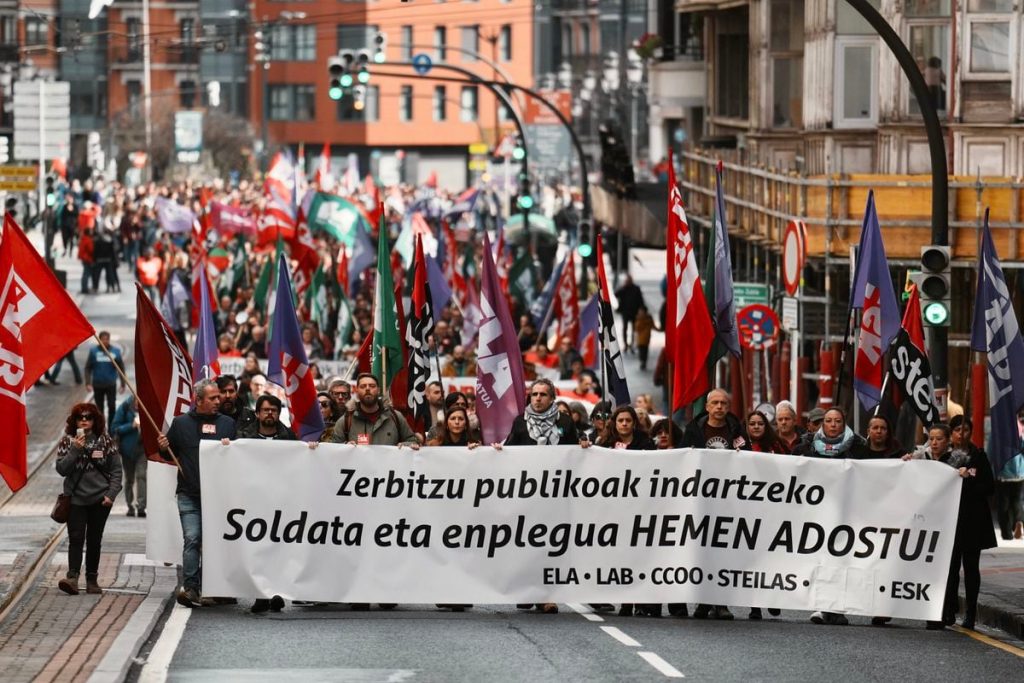In 2022, there were a total of 679 strikes in Spain, with 320 of them taking place in the Basque Country. This region, which represents 4.5% of the country’s population, accounted for nearly 50% of the total labor disputes. Despite having the highest average salary in Spain (2,545.83 euros), the lowest unemployment rate (6.6%), and the highest household income per capita (26.6% above the national average), the Basque Country has a long history of labor conflicts. The strong presence of unions and the tradition of labor activism are deeply ingrained in the Basque identity, with workers participating in protests as a way of life.
The main labor unions in the Basque Country, ELA and CC OO, attribute the region’s favorable labor conditions to decades of grassroots activism and mobilizations. Despite the overall positive situation compared to other parts of Spain, workers continue to advocate for better living standards, especially in areas like housing and healthcare. The Basque Country’s strong union membership, with ELA claiming 103,000 members and CC OO 47,147, reflects the local culture of collective bargaining and negotiation. The region’s industrial sector, encompassing around 125,000 workers, has historically been at the forefront of labor movements, setting the tone for other sectors.
The Basque Country’s unique approach to labor relations, characterized by a more confrontational stance compared to other regions, has resulted in a high level of strike activity. Unions like ELA and LAB, which do not participate in formal dialogue with the government and employers, have relied on mobilization tools like strike funds to sustain prolonged strikes. The case of the Novaltia pharmaceutical distribution workers, who engaged in a three-year and eight-month strike, exemplifies the Basque unions’ enduring commitment to workers’ rights and collective bargaining. The region’s labor movements have also inspired similar strategies in other autonomous communities seeking to enhance workers’ negotiating power.
Despite the challenges posed by ongoing labor disputes, the Basque Country has made progress in establishing collective agreements that benefit a significant portion of the workforce. Through street protests and negotiations, unions have secured improved working conditions and protections for vulnerable groups such as home care workers. The push for gender equality and the prevention of sexual harassment in the workplace have been central themes in recent labor struggles, with workers advocating for specific protocols to address these issues. The resilience and determination of Basque workers, particularly in sectors like home care, highlight the ongoing need for social and labor reforms to address systemic inequalities and support workers in precarious positions.















